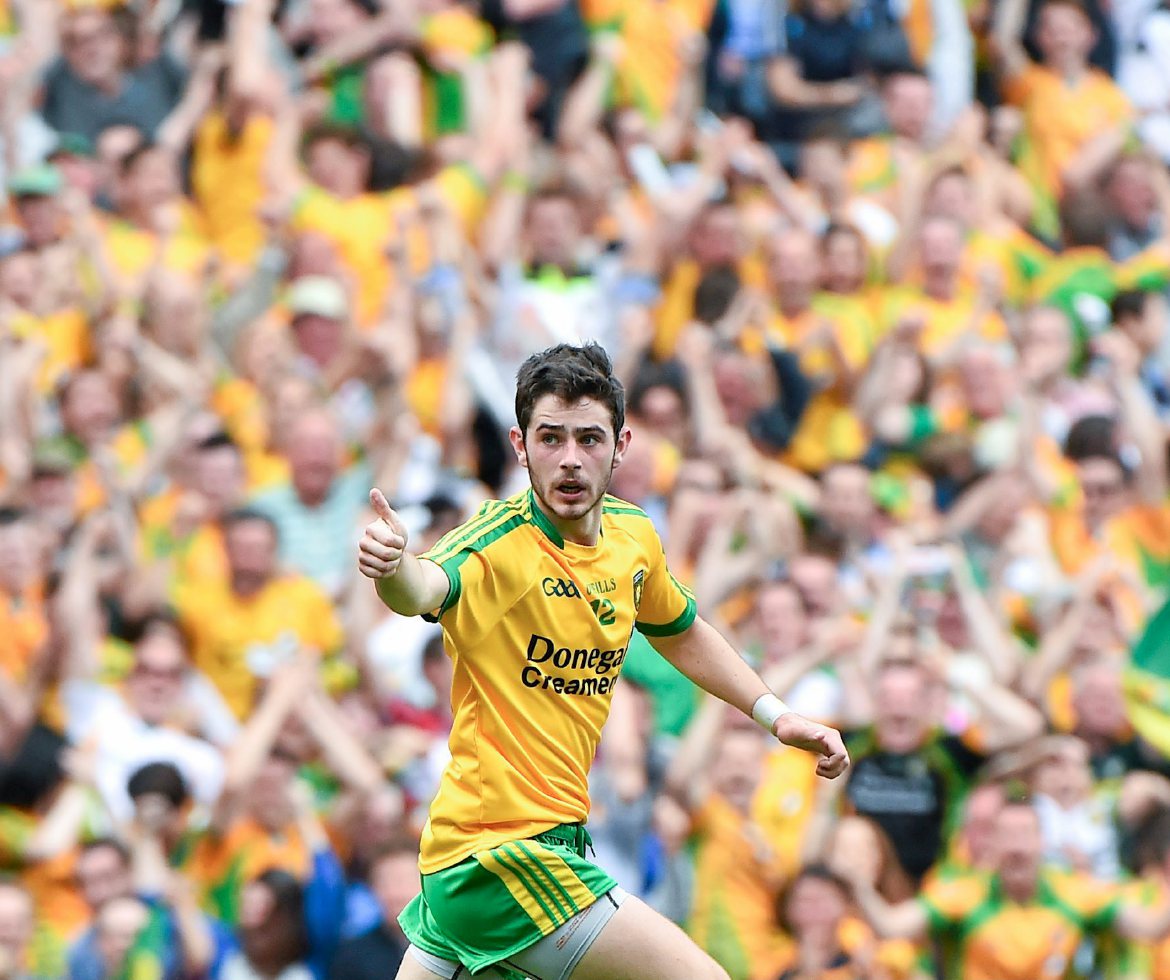THE modern-day Gaelic football team should place speed of transitions at the very top of their priority list.
I’m sure my players are sick to death of me talking about speed of transitions and I’ve no doubt that it annoys them almost as much as my accent. When we think of some of the big games this year, the team that can break from defence to attack at speed often came out on top.
When Mayo finally toppled Dublin, they caught them with speedy transitions. Dublin were on top and Mayo were laborious in attack until made their way through the second half. The game changed when Mayo brought in Jordan Flynn and Conor Loftus, who together with Tommy ‘20 steps’ Conroy, Lee Keegan and Matthew Ruane ran at Dublin with speed and had them chasing shadows. Dublin simply couldn’t cope with the speed Mayo were moving the ball from back to front.
Tyrone did the exact same to Mayo in the final with McGeary et al moving the play up the field at breakneck speed. The often-lambasted Donegal teams under McGuiness didn’t get enough credit for their lightening quick defence to attack tactics. Yes, they got men back but when they turned the ball over they hit at speed and Ryan McHugh’s masterclass against Dublin in 2014 epitomised this.
So how does a team become proficient in speedy transitions? In my opinion there are three prerequisites and they are as follows:
1) the team must buy into the savage workrate it takes. Going from defence to attack at speed takes high energy levels and a collective effort. For example forwards have to be willing to work back and defenders have to be willing to get up and down.
2) Strength and conditioning must be at a level to enable this type of game-plan. This requires sprinting power and the strength to break tackles
3) Positioning. You must be able to stretch the opposition on the counter-attack and have players positioned wide to create gaps in an often centrally clustered defence. Furthermore, you must have a balance of designated players staying ahead of the ball to occupy defenders and to be an out ball for a quick kick pass.
The training ground is the birthplace for effective transitions. There are an array of methods and conditions that can be imposed. For example, you could play conditioned games where you give a team 20 seconds to get a shot off or they must concede possession.
This encourages a mindset of attacking at speed whilst also highlighting the importance of keeping scoring threats close to goals to get shots off. You could also have a condition in games where a double whistle blow indicates that the team in possession must drop the ball and defend to give players experience of going from defence to attack and vice-versa in an instant.
Overall, it takes collective energy, conditioning, and attitude. It looks great in a power point presentation in November but if the remainder of the winter is spent talking about it in the pub instead of in the gym, then come the business end of the season you’ll be watching the big games on television. The best teams, in my opinion, aren’t separated by talent but by work-rate.
On a side note, and in the wake of the recent GAA Congress on the structure of the All-Ireland Football Championship, I am slightly concerned at where the end point is for the club game. I think we are going to see a split-season that involves county players no longer being involved in club league games and only available for club championship with virtually no training with the club. This is worrying as I feel we could soon follow the rugby model where you will either play club or county but not both.
Receive quality journalism wherever you are, on any device. Keep up to date from the comfort of your own home with a digital subscription.
Any time | Any place | Anywhere












